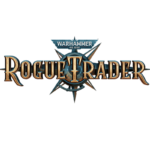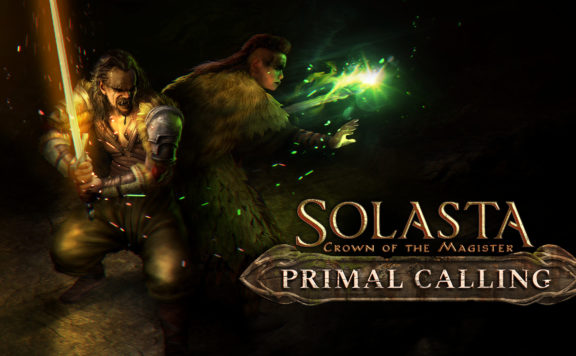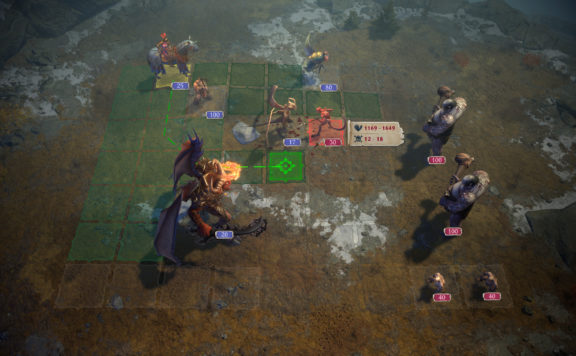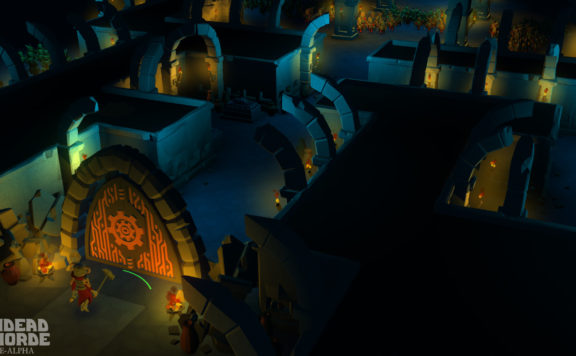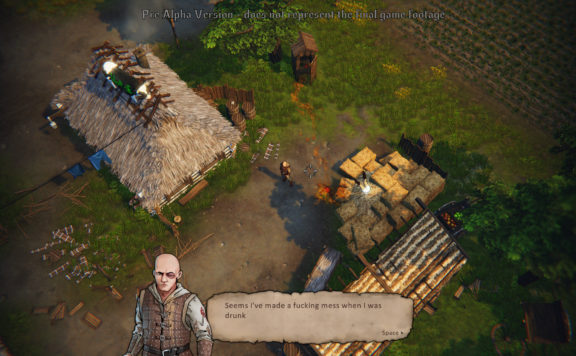Owlcat Games’ latest title Warhammer 40,000: Rogue Trader welcomed in thousands of Lord Captains on December 7th, when the game officially landed on PC, Mac, Xbox and PlayStation. Since the release, the team has been squishing the bugs and ironing out other issues reported by players. So far the game received two large patches accompanied by a number of smaller hotfixes.
The team also introduced Rogue Trader’s Season Pass that includes two upcoming DLCs: Void Shadows (June 2024) and Lex Imperialis (December 2024), each promising a new companion, about 15 hours of gameplay, and a plethora of other additions.
We had a chance for a brief chat with the developers, asking what it is like to work on a project set in such an overwhelming, gargantuan universe and what is next for Warhammer 40,000: Rogue Trader now that the game is released.
Gamespace: Hello! It’s great to have this chat with you. Please introduce yourself.
Anatoly Shestov: Anatoly Shestov, executive producer.
Gamespace: Was it strange to switch to a different IP after such a lengthy stay with Pathfinder?
Anatoly Shestov: From the point of view of processes, pipelines, specifics – yes. From an internal point of view – no, the core of the team has been actively playing Rogue Trader, Black Crusade and Deathwatch since the development of Kingmaker.
Gamespace: What is it like, working on such a massive and expansive IP as Warhammer 40k? Were there any challenges related to portraying the unique scope of the Warhammer universe?
Anatoly Shestov: It’s hard. On the one hand, there is a seemingly endless amount of setting material that must be taken into account in every component of the project. On the other hand, sometimes it turns out that there are no materials on a specific issue, and it is necessary to invent something that will be friendly with everything that already exists. Games Workshop helps a lot with this, but even with their help it is, to put it mildly, not easy.
And of course it’s epic. In size, in details, in plots. This is technically difficult, it needs to be drawn, modeled, written, animated, optimized. And every time, no matter how much effort is put into it, it seems “in a real Warhammer, it could be even more.”
Gamespace: Out of all possible adventure modules, why did your choice fall on Rogue Trader?
Anatoly Shestov: Rogue Trader isn’t an adventure module. It’s a separate game with lots of unique mechanics, flavor and already made content. And we picked it mainly because its innate freedom allows us to tell a most broad variety of stories, it’s sandbox approach opens ways to different pacings, systems and mechanics, it’s core material is what we were playing for years before even start the work on the project.
Gamespace: Did the exclusively turn-based approach allow you to spread wings in terms of tactical combat? What is your favorite outcome of that decision?
Anatoly Shestov: The whole power fantasy of Warhammer Battle lies either in clashes of huge armies or heroism of picked individuals. We were sure from the very beginning our game isn’t about armies, so we’ve explored options that allow us to dive deep into individual parts. It turned out the tailor made battle content and separate spotlight to “hero” is our best shot. Based on the player’s reception, it looks like we did it right.

Gamespace: Now that the game is out, what are your next steps? Do you have plans for co-op? Some kind of DM mode or procedurally generated bunkers to tackle?
Anatoly Shestov: The next big step is 2 DLCs that will come this year. And co-op for consoles. And lots of QoL-things and polishing for the base game. All mod support. And lots of other things!
Gamespace: Would you say that Rogue Trader is aimed more at Warhammer veterans, new players, or just about equal?
Anatoly Shestov: We’ve spent significant resources on making the story compelling and available to both sides of the spectrum, so – yes, we could bring genuine joy of true RPG experience to people not familiar with Warhammer and immense representation of their favorite universe to those who know that Magnus didn’t do anything wrong.
Gamespace: Is there anything you’d like to add?
Anatoly Shestov: Every person on the team had put a part of their soul into the game. We are proud of what we’ve accomplished and happy to share this with the world.

